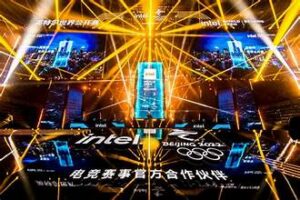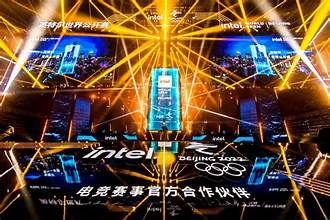
After the Biden administration upped the ante in the tech war by restricting China’s access to advanced US semiconductor technology, the $64,000 question was “How might Beijing respond?”
Punishing American companies in China (like Apple and Tesla) was not considered likely given the employment they generate – Apple contractor Foxconn employs more than 1 million Chinese – not to mention the technology transfer benefits that Beijing craves from foreign companies.
However, a hint of how the Chinese Communist Party may strike back has emerged – and it’s not so much an “action” as a form of “inaction”. The first casualty may be America’s biggest chipmaker.
On February 15 this year, Intel announced an agreement to acquire Israel-based foundry Tower Semiconductor for $5.4 billion.
The deal was seen as key to the long term success of Intel Foundry Services (IFS), as Tower’s strength in analog complemented Intel’s in digital.
“Tower’s specialty technology portfolio, geographic reach, deep customer relationships and services-first operations will help scale Intel’s foundry services and advance our goal of becoming a major provider of foundry capacity globally,” Intel CEO Pat Gelsinger said at the time.
However, that deal may be at the mercy of Beijing , according to some commentators.
“The United States is directly trying to stop China’s semiconductor independence and pulled out all the stops with its recent export controls. Meanwhile, Intel is trying to bolster domestic production and reduce the United State’s reliance on Taiwan. Why would China let Intel, and by extension, the United States government, do this? They will almost certainly block the deal,” wrote semiconductor analyst Doug O’Laughlin in a blog titled “China’s revenge: The Tower Semiconductor deal is in a tough place”.
How could Beijing scupper the deal? The same way it stopped Qualcomm from acquiring NXP Semiconductors in 2018.
Big global M&A deals require the approval of various regulatory agencies, such as the Federal Trade Commission in the US. In China, the antitrust body is the State Administration for Market Regulation (SAMR).
SAMR killed Qualcomm/NXP by not issuing regulatory approval for the deal, and Qualcomm – reliant on the Chinese market for major revenues – had to play along. Some predict that the same may happen with Intel/Tower.
“[In China] every regulatory agency is just an extension of the [communist] party’s will, so I think the clear way to hinder the United States and its companies is to block every deal in the approval process,” said O’Laughlin.
Last month, SAMR applied the same tactic to another US merger deal, though not related to the semiconductor industry. DuPont’s $5.2-billion deal to acquire Arizona-based speciality materials supplier Rogers Corp, which was announced over a year ago, was terminated on November 2 because SAMR failed to approve it.
Companies above a certain annual revenue threshold are subject to SAMR review, but if they don’t have any business in China, it’s a moot point. However, Intel derives a significant portion of its revenue from China – and operates a 300mm wafer fab in the country.
“It’s possible to merge without Chinese approval, but then China could restrict Intel’s right to sell products in China,” O’Laughlin said. “Tower Semi is a quick way to make the IFS dream a reality and has to be at the top of Intel’s strategic priorities. But this is how China can strike back.”
Ben Thompson, a tech analyst who pens the Stratechery newsletter, believes it would be “devastating” for Intel if SAMR blocked the Tower acquisition.
“While it is fair to be skeptical of Intel’s ability to catch-up, that task will be far more difficult without the sort of transformation in culture around foundry services that Tower was acquired to provide,” Thompson said.
If China blocks the deal, Intel could decide to go ahead anyway. Worst case, Beijing may ban the company from selling in China, but given the Chinese government’s vociferous opposition to its lack of access to US chips, that would be a self-inflicted wound.
The national security implications of the case have also not been lost on commentators.
Thompson said that if Intel sacrificed the China market it would “at least be in line with [CEO Pat] Gelsinger’s rhetoric on the matter,” while O’Laughlin said “not getting Tower Semi to kickstart IFS feels like a national security travesty”.
Also Read:
How TSMC Contributed to the Death of 450mm and Upset Intel in the Process
The Evolution of Taiwan’s Silicon Shield
US Supply Chain Data Request Elicits a Range of Responses, from Tight-Lipped to Uptight
Losing Lithography: How the US Invented, then lost, a Critical Chipmaking Process
Why Tech Tales are Wafer Thin in Hollywood
Share this post via:







Memory Matters: Signals from the 2025 NVM Survey